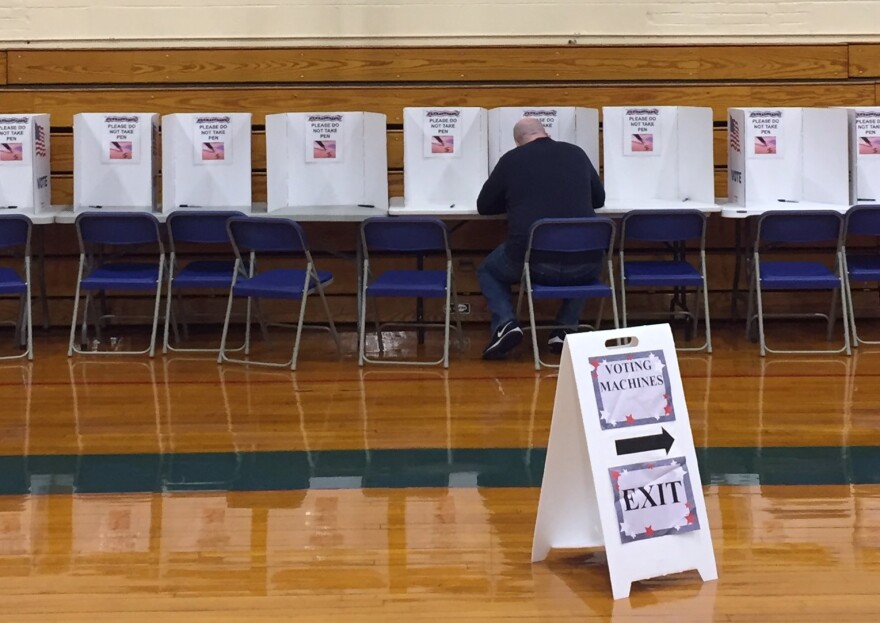When they were knocking on doors in Manchester’s Ward 4 ahead of last fall's elections, Reps. Nicole Klein-Knight and Donald Bouchard kept hearing from people who claimed they were ineligible to vote because of past criminal records.
“It happened almost every day that we would walk,” Klein-Knight recalled. “So that’s a large enough number that we thought, this isn’t just one person’s confusion, this is a systemic issue in New Hampshire.”
So they tried to figure out what the law actually said, but they struggled to get a clear explanation.
“We asked, can they vote? And we couldn't find an answer,” Bouchard said.
Eventually, they learned that there was a law addressing this — and under those rules, convicted felons were eligible to vote once they were no longer incarcerated, even while on probation or parole.
But Klein-Knight and Bouchard thought the language in the law itself added to potential confusion. Together they sponsored House Bill 486, which aims to clean up that language and ensure people who’ve served time for felony convictions are more informed about their voting rights upon release from prison. Gov. Chris Sununu signed the law this week, and it’s slated to take effect in September.

Previously, the law stated that someone sentenced for a felony was banned from voting “from the time of his or her sentence until his or her final discharge.” It also said that if the “execution of [that] sentence is suspended with or without the defendant being placed on probation or he or she is paroled after commitment to imprisonment, he or she may vote during the period of the suspension or parole.”
Under the law sponsored by Klein-Knight and Bouchard, the law includes additional language clarifying that “‘final discharge’ means the release of a prisoner from incarceration,” and “a person who is on probation or parole shall be considered to be finally discharged” for the purposes of restoring their voting rights.
The law also now requires correctional facilities to “provide [an] offender written notice that he or she may vote during the period of the suspension or parole,” and it also mandates new training for probation-parole officers on the subject.
Deputy Secretary of State Dave Scanlan said the law “will not change any practices of [the Secretary of State’s] office relating to voting rights for felons.”
“For at least the last decade, every edition of the NH Election Procedure Manual has included a section helping local election officials better understand the voting rights for felons,” Scanlan said. “These voting rights have not changed for at least a decade and have been a topic regularly discussed at training sessions across the state for years.”
The state’s election procedure manual provides greater detail on how to handle not only voting rights for those convicted of felonies, but also for people who are awaiting trial or serving on misdemeanor charges. Much of this information, however, is not readily available on other state websites.
“People confined in a penal institution in pre-trial detention or as a result of a conviction for a misdemeanor retain the right to vote,” the election procedure manual reads. “Most people sentenced to County Corrections fall in this category. Their domicile for voting purposes is the town or city where they had their domicile immediately prior to being confined. Persons confined in a penal institution must vote by absentee ballot.”
While Klein-Knight understands that her new law does not necessarily change the rules around voting rights for felons, she hopes it still sends an important message.
“Now we have something in place that says, clearly, ‘You do have this right, this is your right,’” she said. “It’s law now, and it’s very clearly understood. So nobody can take that away from you.”








